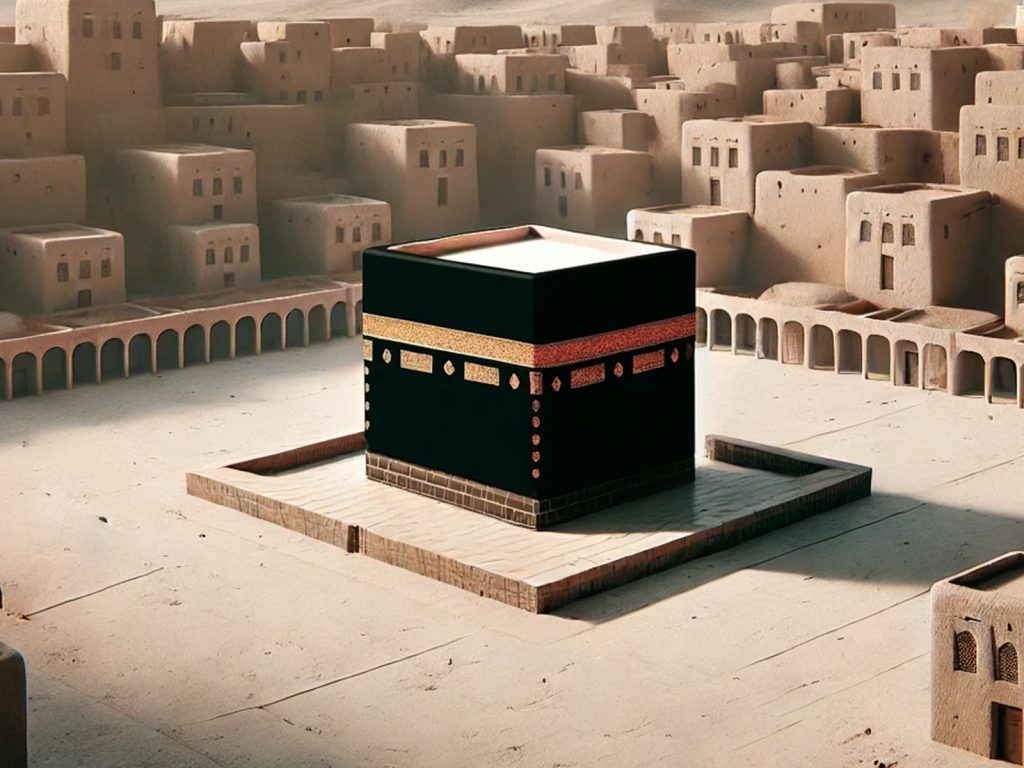One of the most important reasons people were drawn to Islam was the noble character of the Prophet Muhammad (peace be upon him and his family).
This noble character encompassed qualities such as magnanimity, contentment, patience, and forgiveness.
Below, we explore one of the instances of the Prophet’s (peace be upon him and his family) forgiveness as recorded in history.
The Prophet Muhammad (peace be upon him and his family), accompanied by an army of ten thousand, set out from Medina toward Mecca with the aim of conquering it. At night, near the outskirts of Mecca, he instructed his soldiers to each light a torch and hold it aloft. At the same time, Abu Sufyan, a resident of Mecca who, during the years of Islam’s emergence and subsequent growth, had spared no effort in opposing Islam and preventing its spread—including leading the polytheists in repeated battles against Islam and the Prophet (peace be upon him and his family)—sent an envoy to assess the situation outside the city. When the envoy did not return after a long time, Abu Sufyan himself went to investigate.[1]
Upon seeing that the polytheists had not prepared an army to resist and realizing that their defeat was inevitable, he heeded the advice of one of his companions and mounted a steed to personally seek a truce from the Prophet (peace be upon him and his family). The Prophet (peace be upon him and his family) granted him protection until morning. The following day, Abu Sufyan was brought before the Prophet (peace be upon him and his family) once more. Finally, in order to secure his safety, Abu Sufyan uttered the declaration of faith (Shahada).
After Abu Sufyan recited the Shahada, the Prophet (peace be upon him and his family) said to him:
“Return, for you are safe, and whoever is in your house is also safe. Announce that anyone who stays in their home with the door shut is under protection.”[2]
Thus, when the Prophet (peace be upon him and his family) entered Mecca, his measures to keep the polytheists unaware of the movement of the Islamic army ensured that the polytheists were caught off guard and retreated to their homes. Only a small number came out to fight, but because the Prophet (peace be upon him and his family) had ordered, “Do not fight unless they initiate the fight,” the Muslim army conquered Mecca with minimal skirmishes.
Reflecting on the story of the conquest of Mecca reveals that the Prophet (peace be upon him and his family) sought to achieve victory with the least amount of conflict and bloodshed. He even granted protection to Abu Sufyan, who had directly participated in the expulsion, killing, and persecution of Muslims and the Prophet’s (peace be upon him and his family) kin. While alternatives such as execution or imprisonment of Abu Sufyan were viable, the Prophet (peace be upon him and his family) forgave those who had remained in their homes despite their previous hostilities against Islam. In prior years, these individuals had been invited to embrace Islam, yet they had refused.
When the Muslims reached Mecca, some chanted the slogan, “Today is the day of slaughter.” Upon hearing this, the Prophet of Mercy (peace be upon him and his family) became displeased and corrected them: “Today is the day of mercy and forgiveness.”
This was not the first instance of the Prophet’s (peace be upon him and his family) forgiveness that the people witnessed. Other examples during those years included his kindness to slaves, forgiving wrongdoers, showing goodness to those who treated him poorly, and avoiding revenge.
This act of forgiveness led to:
- The polytheists being drawn to Islam, as they recognized the magnanimity and noble spirit of the Prophet (peace be upon him and his family).
- The prevention of bloodshed and the deepening of enmity.
- Polytheists, many of whom had suffered harm at the hands of their leaders, abandoning idolatry and embracing Islam, thereby aiding the growth of the Muslim community.
Indeed, the Prophet of Islam’s (peace be upon him and his family) approach was one of forgiveness and generosity. Truly, can those who kill Muslims and non-Muslims alike in the name of Islam, committing brutal acts of torture and bloodshed, claim to be followers of Islam? Or has Islam for them become nothing more than a name?
(Adapted from the book “How the Sun of Islam Shone,” authored by the late Muhammad Baqir Alam al-Huda, with some summarization and modifications.)
Footnotes:
[1] I’lam al-Wara bi A’lam al-Huda, Page 108; Bihar al-Anwar, Vol. 21, Page 129
[2] Khisal, Vol. 1, Page 133; Bihar al-Anwar, Vol. 21, Page 117


